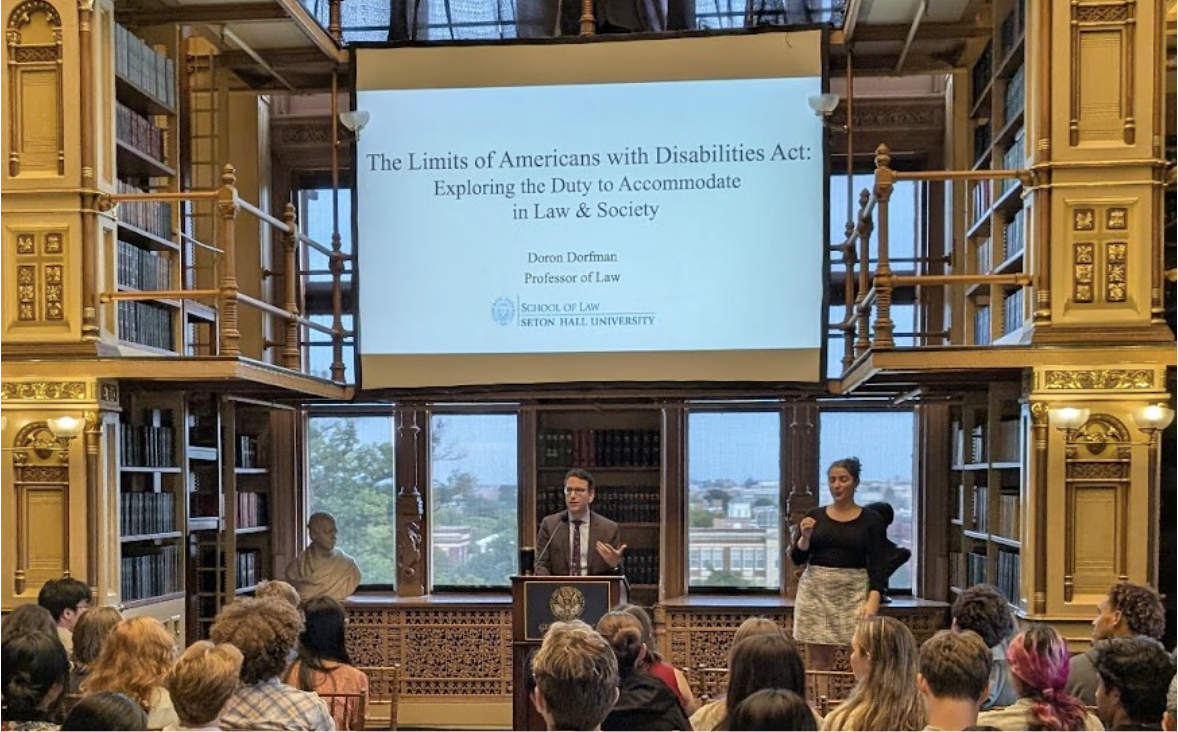Norovirus cases increased in prevalence throughout the Washington, D.C., metropolitan area during winter months, prompting Georgetown University students to prioritize health on campus.
Norovirus is an infectious disease that primarily manifests through gastrointestinal symptoms such as vomiting, abdominal pain and diarrhea, which can all lead to dehydration. The virus quickly spreads in populated, confined areas such as college campuses, hospitals and cruise ships, and is transmitted through lingering virus particles on public surfaces.
Shauna Bennett, a professor of biology at Georgetown University, said the norovirus has a contagious and ever-evolving nature.
“It’s a non-envelope virus, meaning it’s more stable than other types of viruses and can survive longer in the environment,” Bennett told The Hoya. “Norovirus is also an RNA virus so there’s a lot more variations out there, making it harder to control.”
A spokesperson from the Georgetown University Student Health Center (SHC) said norovirus is highly contagious due to the small amount of the virus needed for infection.
“People who are sick with norovirus shed billions of virus particles, and it only takes a few virus particles to make someone sick,” the spokesperson wrote to The Hoya.
Bennett said norovirus particles are incredibly well-adapted to living on their hosts, even after recovery, so students should take precautions after infection to stop the spread of norovirus.
“People can shed the virus weeks after they’re sick, meaning they could have virus particles coming off them well after they’ve recovered,” Bennett said.
While norovirus has not yet become a major problem in D.C., neighboring states such as Virginia have reported an increase in outbreaks compared to the same period last year. Moreover, The Centers for Disease Control, an organization focused on public health in the US, shows that the United States as a whole has seen a 36% rise in norovirus outbreaks, and many Georgetown students contracted the infection while away from campus over winter break.
Breanna Lewis (CAS ’26), who recently recovered from norovirus, said all students should avoid class if feeling sick, especially as some students and faculty may have increased susceptibilities to the virus.
“Especially with the attendance policies, they may still come to class sick,” Lewis told The Hoya. “I think that masking still needs to be a big thing.”
The SHC spokesperson said few norovirus cases have been reported on the Hilltop campus and that Georgetown staff are prepared to respond if need be.
“Georgetown has excellent coordination between its different campus services that allows us to move quickly as an institution to put safety measures in place (such as increased cleaning of high touch surfaces when needed) to decrease the effects of this virus,” the spokesperson wrote.
The spokesperson added that students should practice good hygiene and stay home while sick to combat the spread of illness.
“Proper handwashing with soap and water will help prevent germs from spreading. Alcohol-based sanitizers are not effective against norovirus,” the spokesperson wrote.
Vivien Ryen (SFS ’28) said that despite the precautionary measures, she is concerned about becoming sick.
“I am worried about the norovirus going around, but it’s more of a passing thought when I see someone walking around with a mask, or when I’m going to shake someone’s hand,” Ryen told The Hoya.
The SHC spokesperson said students should continue making informed decisions about personal hygiene and contact with people or surfaces.
“If you get sick, please stay home from classes and activities, and rest so you can recover and minimize your risk of spreading illness to others,” the spokesperson wrote.




